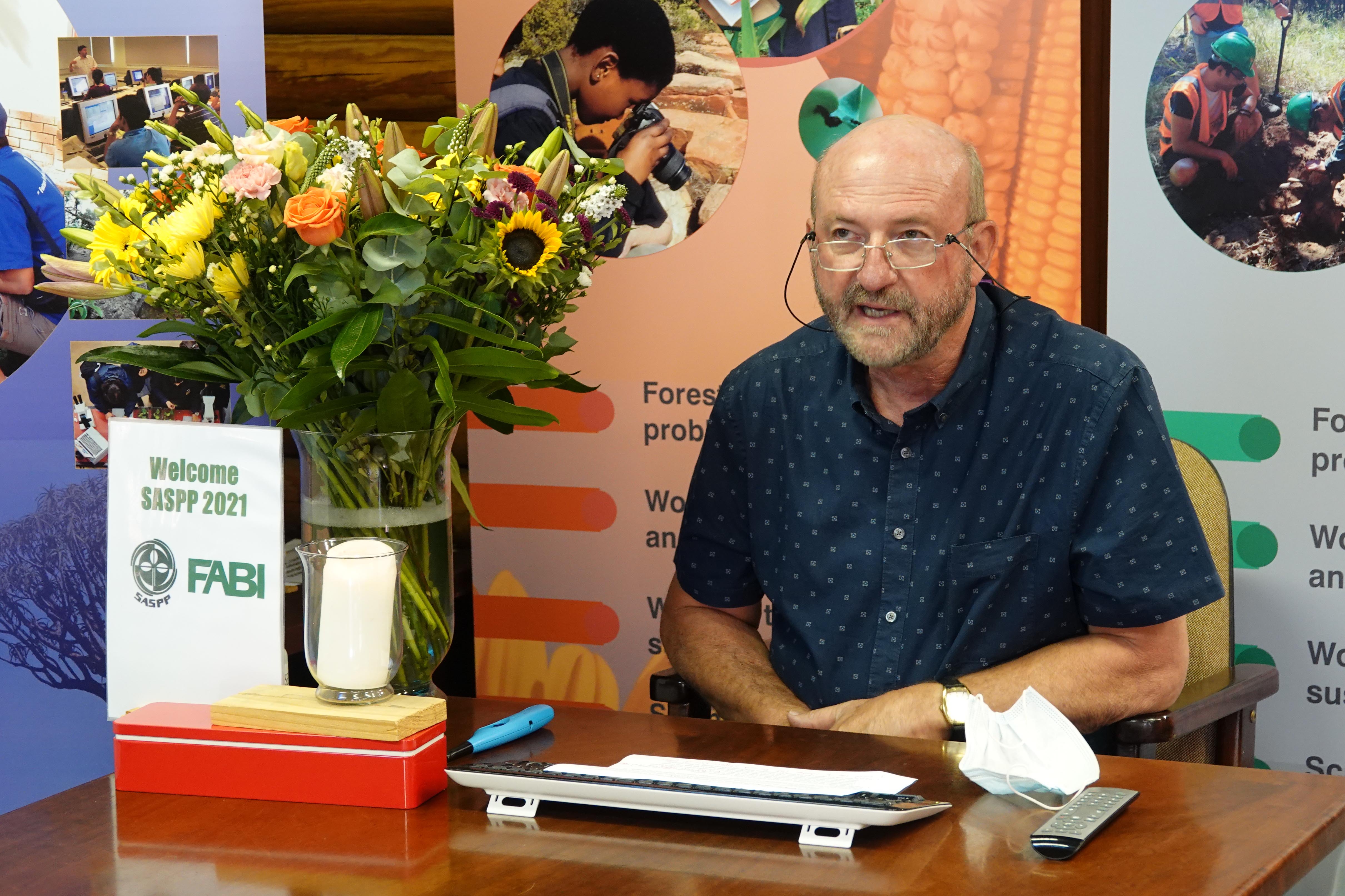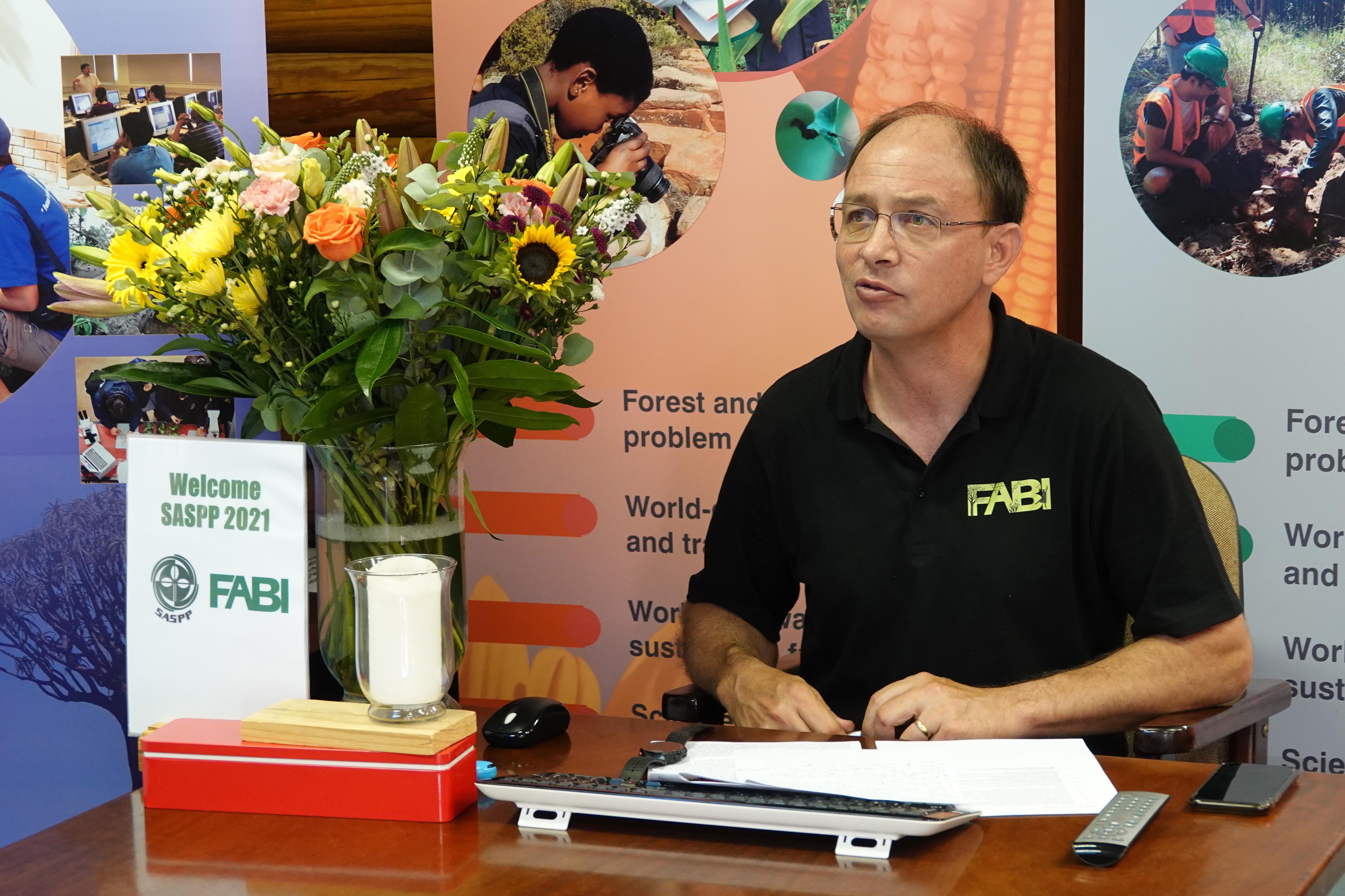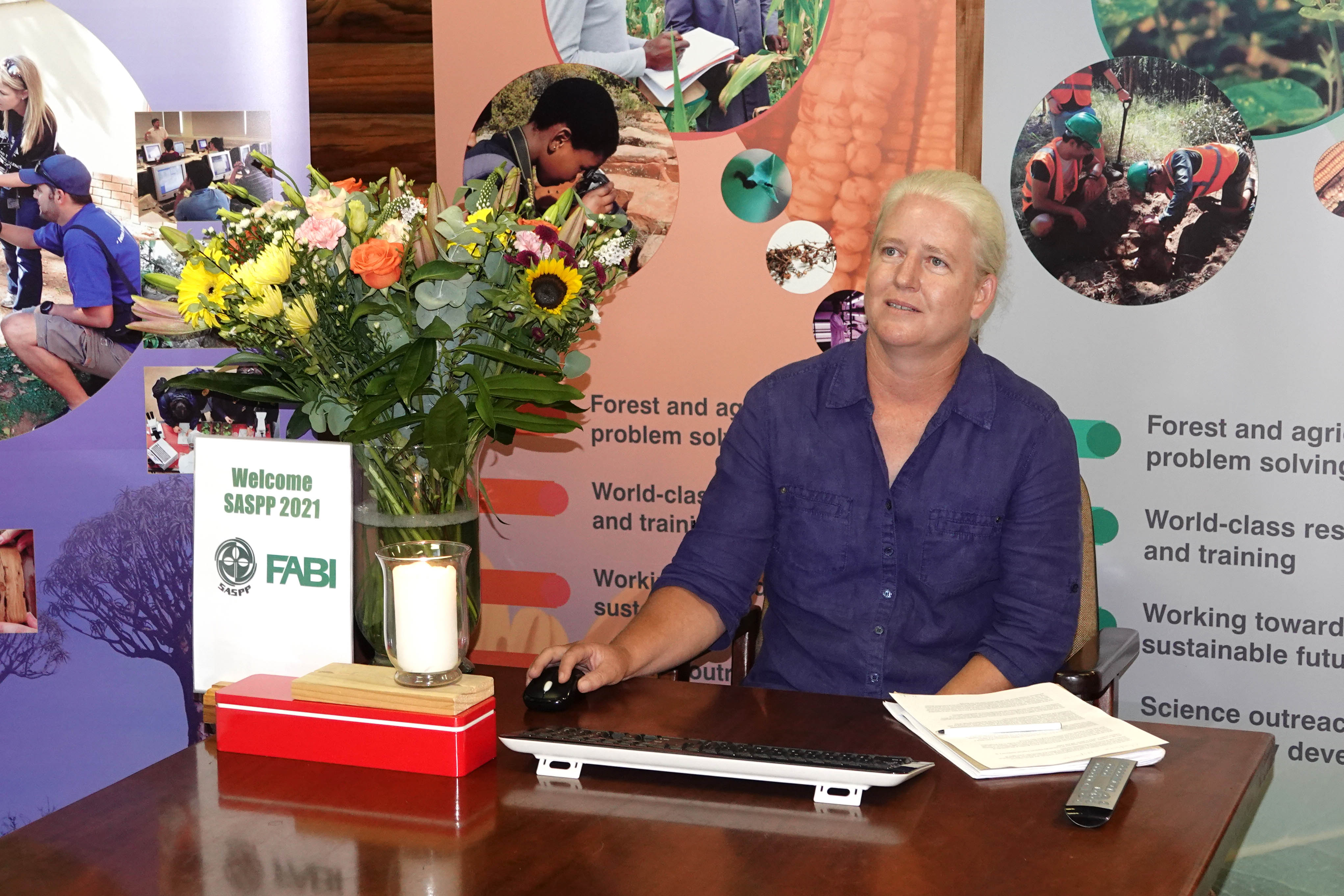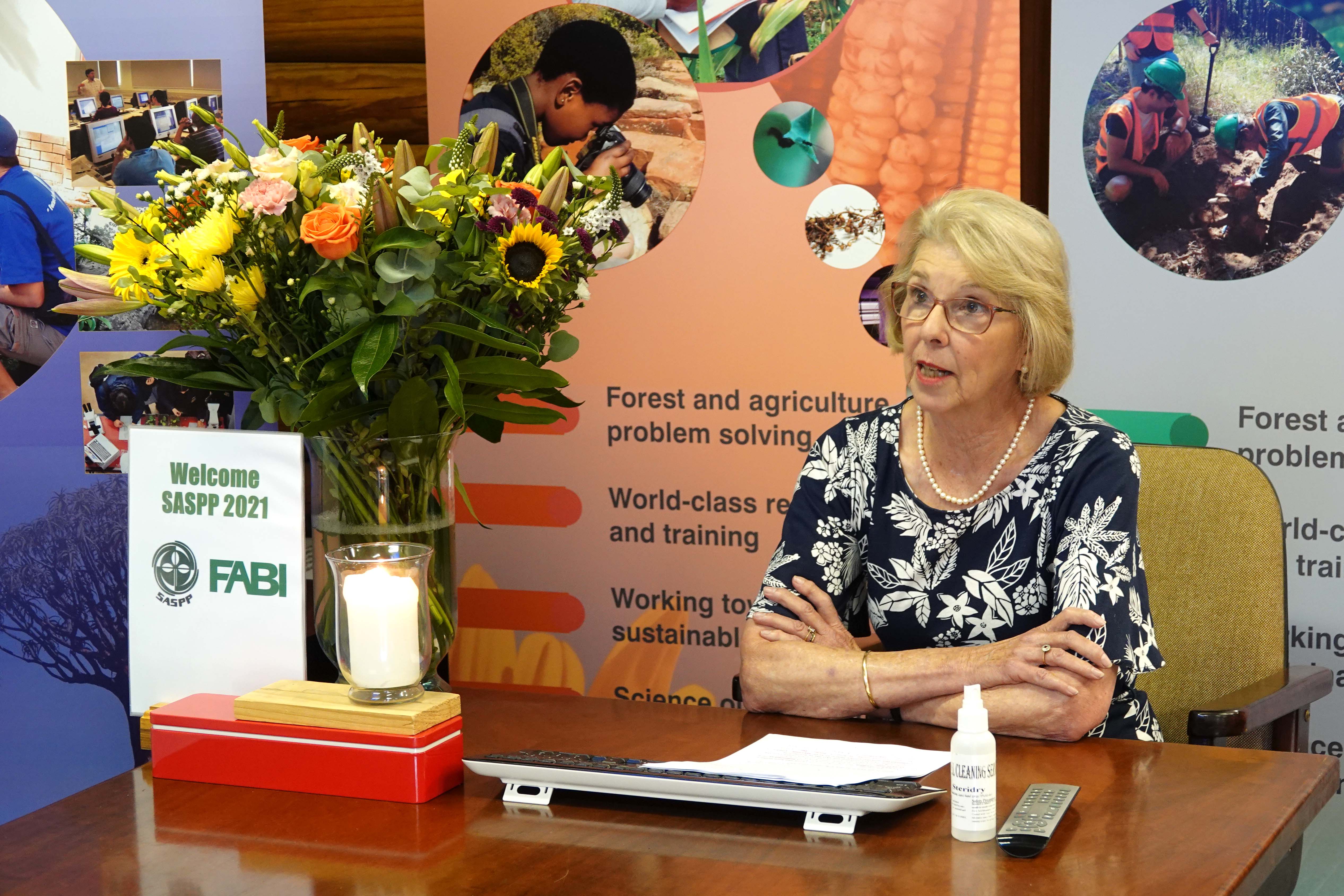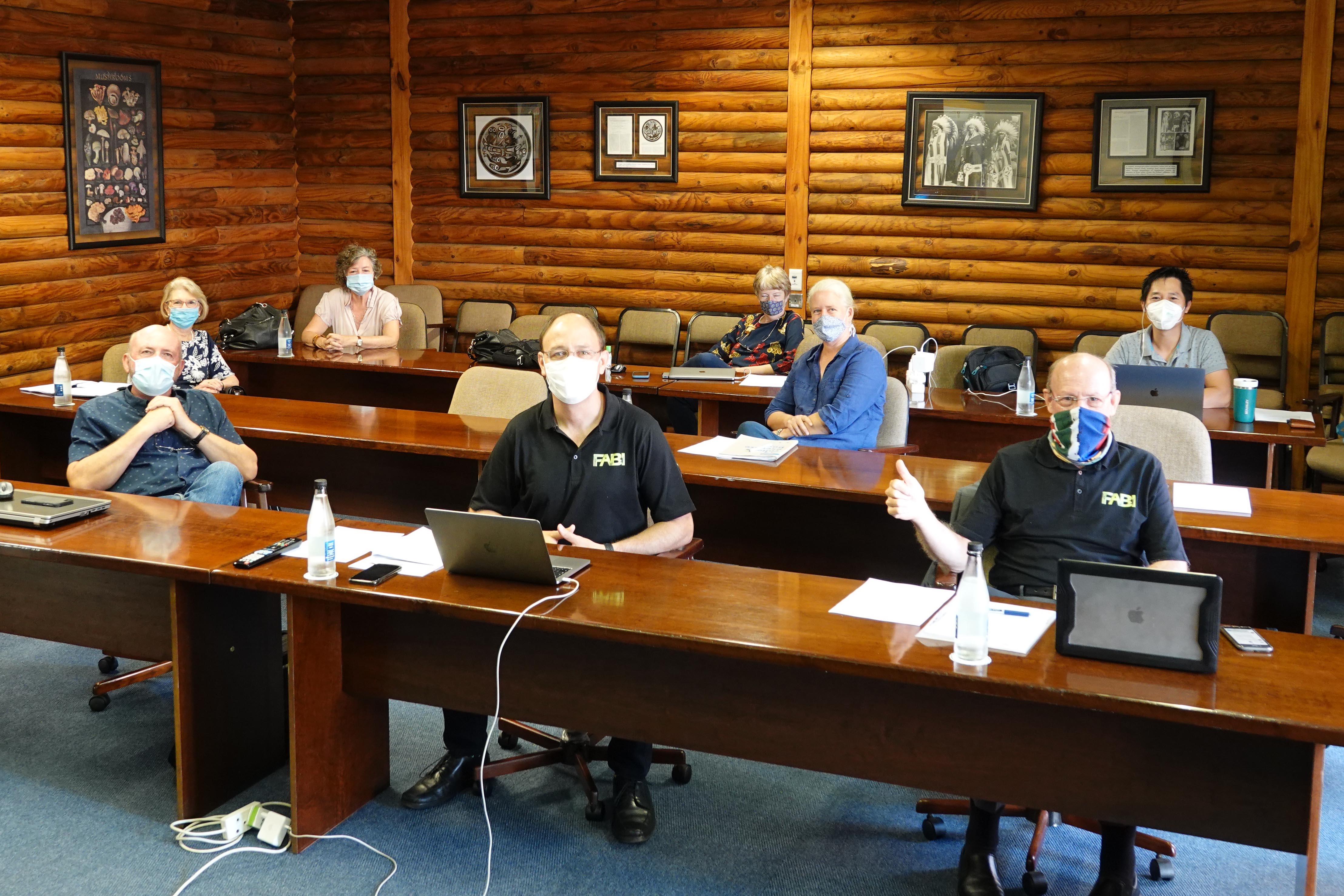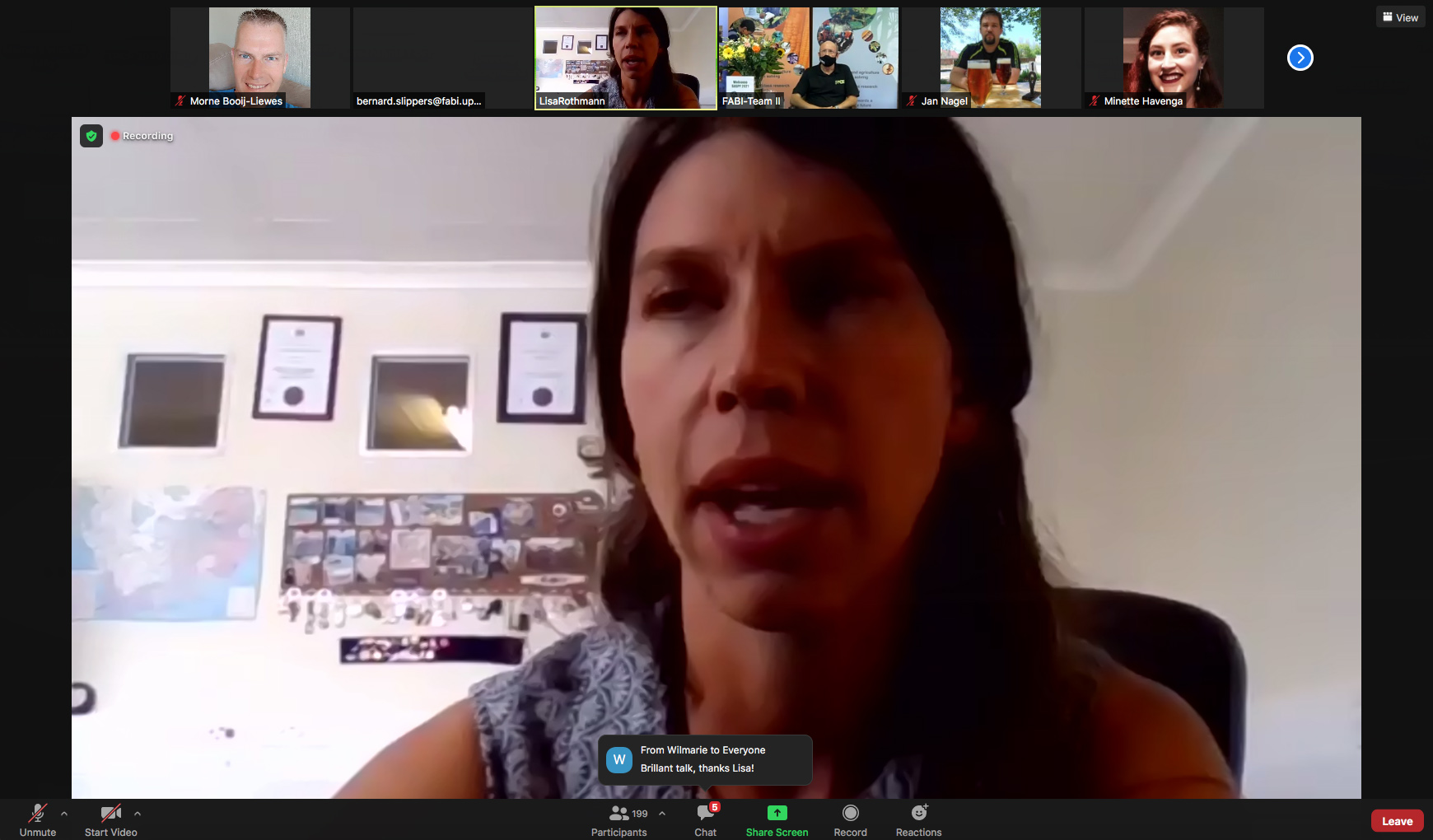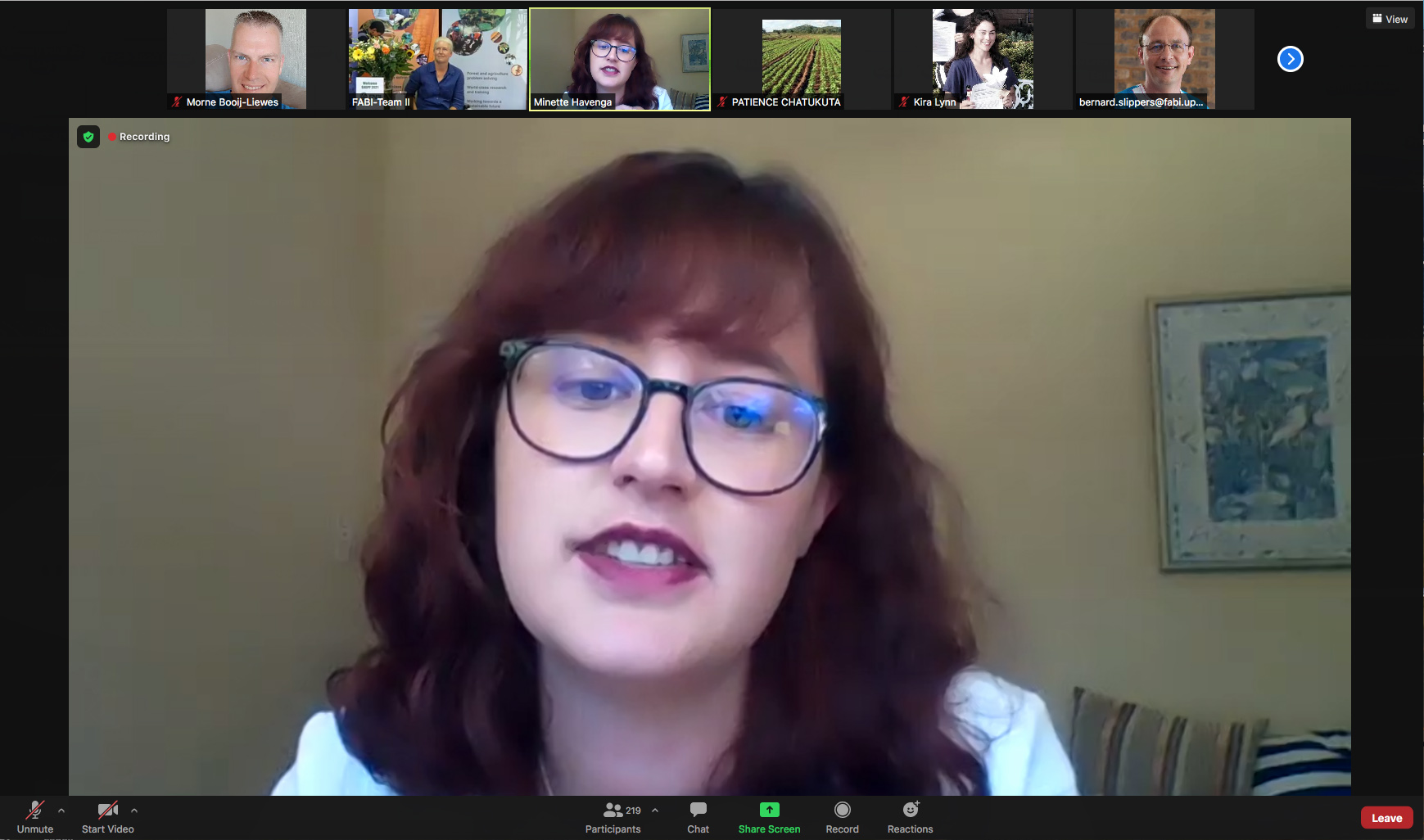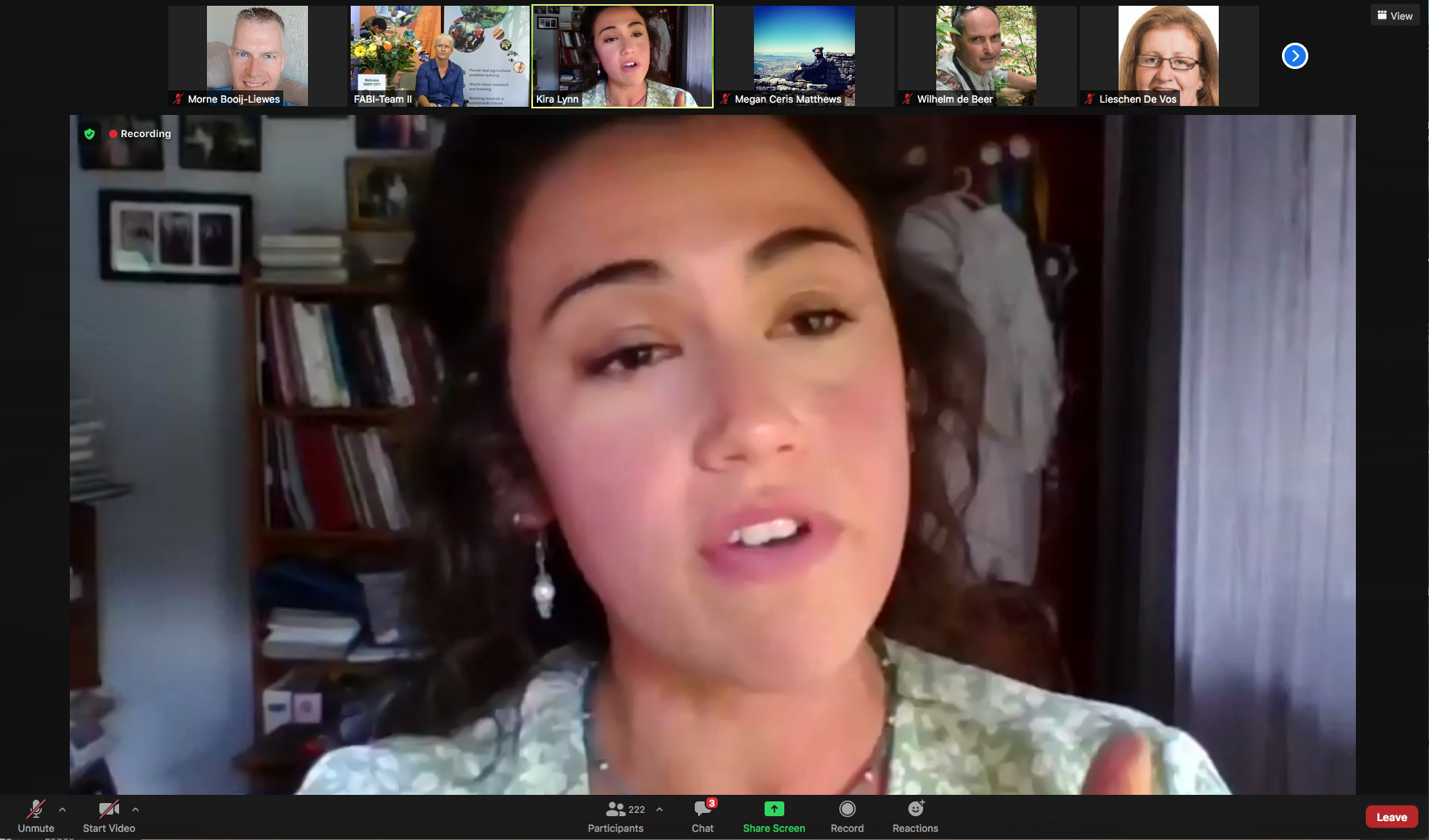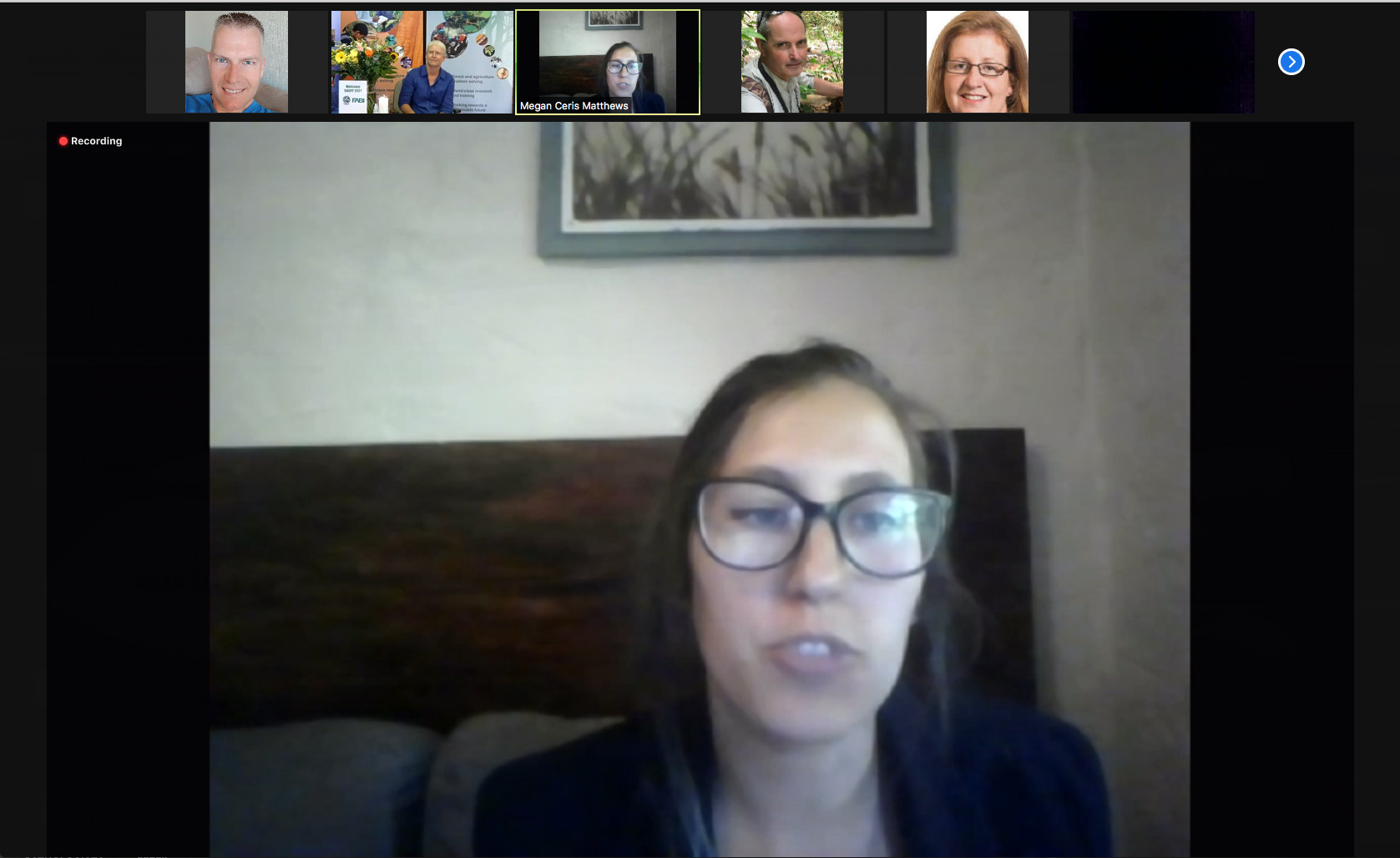FABI hosts a virtual SASPP Symposium 2021-01-25
On 20 January, FABI had the pleasure of hosting a virtual congress of the South African Society of Plant Pathologists’ (SASPP). The 52nd Congress of the Society was scheduled to take place at the University of Pretoria's Future Africa Institute, which was not possible due to COVID-19. A decision was thus made by the SASPP Council to approve a shortened event with the intention of holding a full and in- person Congress at Future Africa in January 2021. The four-hour long virtual event was hosted on the Zoom platform and served to promote contact between South African plant pathologists at a time when such contacts are difficult to maintain. The decision to hold a virtual congress and not to simply postpone the event was also important as it marked the ending of the United Nations International Year of Plant Health (IYPH), an important global milestone focussing attention on the urgent need for greater global collaboration to protect plant health.
SASPP President Prof. Wijnand Swart opened the meeting by welcoming the 335 registered delegates from 27 countries. He noted that while the COVID-19 pandemic prevented travel, it did not isolate researchers. Rather, it presented new opportunities where virtual meetings are able to extend a global reach. “We miss the interaction that our congresses provide, but we are still able to interact in cyberspace through online meetings” he said. He also pointed out that the MoU signed with the American Phytopathological Society (APS) offered many exciting opportunities for SASPP members to collaborate and interact with an extensive international research community.
FABI Director Prof. Bernard Slippers welcomed participants and introduced the guest speaker, Prof. Sophien Kamoun. He dedicated the event to the memory of Prof. Terry Aveling, a stalwart plant pathologists and loyal member of the SASPP who passed away due to COVID-19 complications in December. As a token of respect and remembrance for colleagues, family and friends lost due to COVID-19, he lit a candle that burned brightly throughout the duration of the Congress.
Professor Kamoun was introduced by Prof. Slippers as a globally-recognised researcher with a long track record of leadership and service to the Science community. It was also noted that Prof. Kamoun is also a vocal proponent of “open science” and publishing in open access journals. In his presentation, he argued that traditional structures of science are to slow to react to emergencies and highlighted the fact that plant pathogen genomes should be shared publicly in a similar fashion to those of human pathogens. He strongly advocated pre-publication through pre-prints and made note of the fact that this does not prevent researchers publishing in traditional journals. “We should publish and filter not filter and publish and should stop using journals as a proxy of the quality of science” he said.
Prof. Almuth Hammerbacher chaired the student presentations session during which six students presented their research work and answered questioned posed by symposium attendees. These presentations were chosen from a large number of applicants due to the time constrains of the virtual symposium.
Prof. Jane Carruthers, Chief Editor of the open-access South African Journal of Science introduced a special issue of the journal (Volume 116, issue 11-12) commemorating IYPH2020. She described this issue “as one of the most important” since the journal’s inception 116 years ago. Furthermore, that the issue would serve as an excellent source of the latest research, reviews and commentaries from leading plant pathologists and entomologists in South Africa. “It will inform not only plant pathologists and food growers, but also policymakers and the public of the importance of plant health”.
Professor Mike Wingfield stood in for Prof. Teresa Coutinho to share with participants of the Congress, the the imminent publication of a book chronicling the 60 year history of the SASPP and 130 years of plant pathology in South Africa. This book that has been in planning and production for a number of years has been co-authored by Prof. Coutinho and Prof. Wingfield. The 300-plus page book will be published shortly is the first comprehensive account of the history of the Society and discipline to have been produced. Prof Wingfield noted that it should not be seen as a final product, but rather a “work in progress” that can be easily expanded in the future.
SASPP President Prof. Wijnand Swart closed the virtual Congress with the announcement of Dr Megan van Dyk from Stellenbosch University as the winner of the biennial John and Petaken Mildenhall Best PhD Award. He thanked everyone for their hard work in making this unusual congress a success and looked forward to the next Biennial Congress of the SASPP to be held from 23-26 January 2022.
Presentations:
- Megan du Toit (Stellenbosch University). Quantitative detection of economically important Fusarium oxysporum sp. cubensestrains in Africa in plants, soil and water.
- Kira Lynn (University of Pretoria). Novel Fusariummutualists of two Euwallaceaspecies infesting Acacia crassicarpa in Indonesia.
- Patience Chatukuta (University of the Witwatersrand). A Cassava protoplast system for screening genes associated with the response to South African Cassava mosaic virus.
- Minette Havenga (University of Pretoria; Stellenbosch University). Reproductive biology of a globally-important Eucalyptus foliar pathogen.
- Jan Nagel (University of Pretoria). Highly transferable microsatellite markers for the genera Lasiodiplodia and Neofusicoccum.
- Lisa Rothmann (University of the Free State). The role of reproducible research tools in quantifying a decade-long survey of Sclerotinia disease prevalence, in South Africa.


